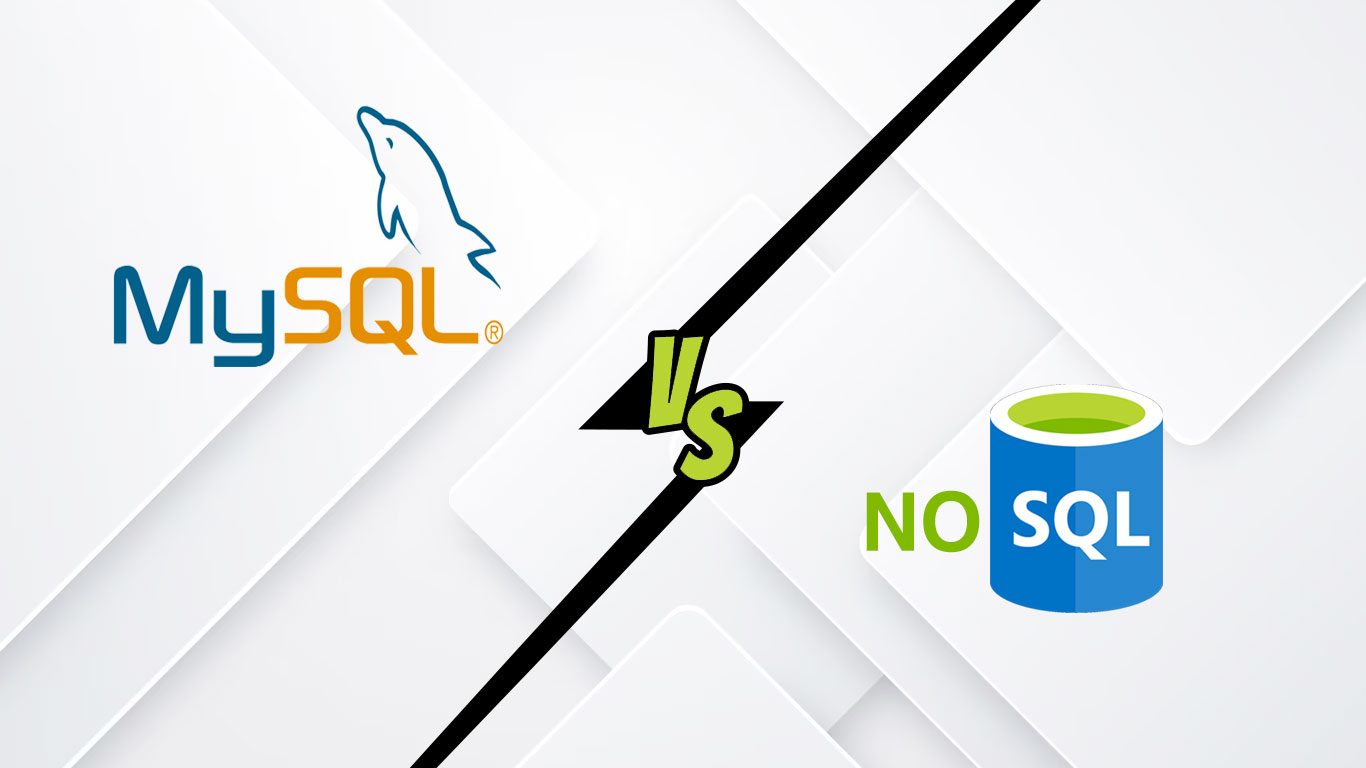In our digital world, how we keep, get to, and look after data is very important for any business or project to do well. Starting a new project comes with important choices, and one big one is picking the right kind of database. Two common options are MySQL and NoSQL databases. Each of these has its own benefits and ideal uses, making them fit better with different kinds of projects. This blog will explore MySQL versus NoSQL in easy-to-understand language, showing you their main differences to help you choose the best one for what you need.
What is MySQL?
MySQL is an open-source relational database management system (RDBMS). In simple terms, it’s a type of database that stores data in a structured format, using tables. These tables are related to each other, and data is accessed through SQL (Structured Query Language) – a standard programming language used for managing and manipulating relational databases. MySQL is widely recognized for its reliability, robustness, and ease of use. It’s a go-to choice for applications requiring a structured data storage solution where relationships between the data elements are strictly defined.
What is NoSQL?
NoSQL, standing for “Not Only SQL,” is a collective term that encompasses a wide range of database technologies designed for large-scale data storage and for handling the vast amounts of data generated by modern applications. Unlike MySQL, NoSQL databases do not require a fixed schema, and they can store unstructured data (like text or social media posts), allowing for more flexibility in handling different types of data. NoSQL databases are known for their ability to scale out horizontally, making them ideal for applications that require high performance and scalability.
Key Differences Between MySQL and NoSQL
- Data Structure: MySQL uses a structured query language (SQL) for defining and manipulating data, which is very powerful but requires all data to adhere to a predefined schema. NoSQL databases, on the other hand, can store unstructured or semi-structured data, offering more flexibility in the types of data they can handle.
- Scalability: MySQL databases are vertically scalable, meaning you can increase the load on a single server by adding more resources (CPU, RAM, SSD). NoSQL databases are horizontally scalable, which means they handle more traffic by adding more servers in the database.
- Performance: MySQL can efficiently manage complex queries, offering a high level of precision and control. NoSQL databases are optimized for speed and scalability, making them faster for querying large datasets, especially when the queries are not complex.
- Reliability and Consistency: MySQL is known for its strong consistency, ensuring that every read receives the most recent write or an error. NoSQL databases often offer eventual consistency, which means that if no new updates are made to a given piece of data, eventually all accesses to that data will return the last updated value.
Use Cases for MySQL
- Web Applications: MySQL is a popular choice for web applications, particularly those that require complex transactions and relationships between data, such as e-commerce sites or online booking systems.
- Financial Systems: Due to its strong consistency and reliability, MySQL is well-suited for financial applications where precision and data integrity are critical.
- Content Management Systems (CMS): MySQL provides the structured data storage and query capabilities needed for managing and delivering content in CMS platforms.
Use Cases for NoSQL
- Big Data Applications: NoSQL databases are designed to handle vast volumes of data, making them ideal for big data analytics and storage.
- Real-Time Applications: The high performance and scalability of NoSQL databases make them suitable for real-time applications, such as messaging apps or live streaming services.
- Flexible Data Models: Applications that require the storage of unstructured data, like social media platforms or content aggregation sites, can benefit from the schema-less nature of NoSQL databases.
Conclusion
Choosing between MySQL and NoSQL databases boils down to understanding your project’s specific needs. If your application requires complex transactions, data integrity, and relationships between data elements, MySQL might be the way to go. On the other hand, if you’re dealing with vast amounts of unstructured data, need scalability, or have flexible schema requirements, NoSQL could offer the performance and flexibility you need.
Remember, the decision isn’t necessarily binary. Some projects might benefit from using both types of databases for different needs. By understanding the strengths and use cases of MySQL and NoSQL, you can make an informed decision that best supports your project’s requirements, ensuring its success in the digital world.


